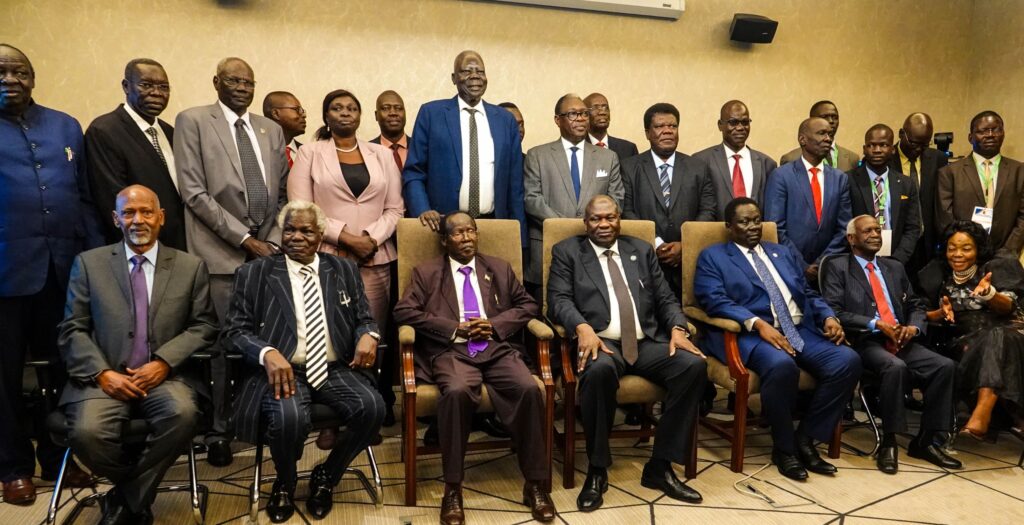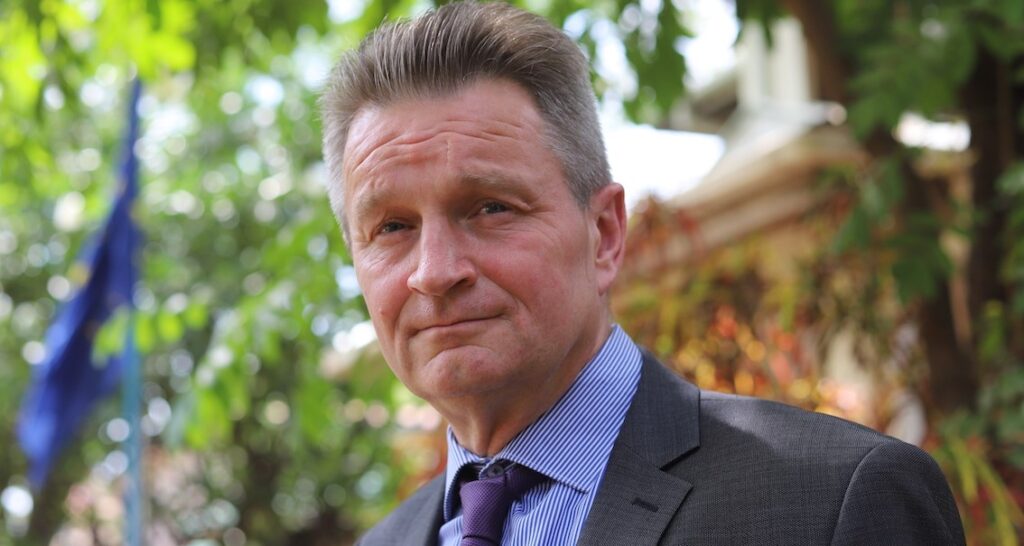EU Ambassador to South Sudan Timo Olkkonen has described a fair and transparent legal system as the cornerstone of any democratic society.
Olkkonen expressed the sentiments during the validation workshop of the Judicial Reform Committee (JRC) findings and recommendations at a Juba hotel on Wednesday.
The event was attended by First Vice-President Dr Riek Machar, Vice-President for Economic Cluster, Dr James Wani Igga, and Abdelbaggi Akol, the Vice-President for Service Cluster and other senior officials.
He said reform towards a strong and independent judiciary, accessible to all, is essential for ensuring lasting peace, stability, and prosperity for all South Sudanese.
“Without the rule of law, peace cannot be sustained, human rights cannot be fully realized, and economic development will be stifled.
“Who would invest in a country without a credible judiciary and guarantee that the rule of law will be upheld?” stressed Olkkonen.
The envoy pointed out that judicial reform entailed more than just improving the courts’ functionality and the appointment and promotion of judges.
It is also about restoring justice, fostering public trust, and ensuring the protection of the rights and dignity of every citizen, he said.
JRC is entrusted by Article 1.17.6 of the Peace Agreement with the critical task of reviewing and proposing reforms to the judicial system. This includes restructuring the judiciary and ensuring that it operates with integrity, independence, and efficiency.
In addition, Article 1.19.1.9 of the Peace Agreement foresees the establishment of a credible, independent and impartial constitution court, which is an essential element to the constitution making.

A recent Justice Needs and Satisfaction survey highlighted some of the critical gaps in the South Sudan legal system. It revealed that 1.75 million South Sudanese faced legal problems each year, with around 60% involving land disputes, domestic violence, and crime.
While traditional systems resolved 57% of those issues, nearly two million cases remained unresolved, contributing to heightened violence and insecurity. This backlog is further compounded by a weakened judicial infrastructure, a result of years of civil war.
Olkkonen pointed out some key priorities of the reform agenda:
A judiciary that ensures that laws are applied consistently and fairly.
Access to justice for all citizens when their rights are violated.
End to impunity and delivery of justice.
He reaffirmed the EU’s commitment to ensuring that the judicial reform is inclusive, participatory, and gender-sensitive. Women, youth, and other marginalized groups, he said, must have a voice in shaping a justice system that serves the needs of all South Sudanese.
The EU has been supporting the South Sudan justice system since 2013, with the main target of a better and more accessible justice for all citizens, and fostering peace and reconciliation through transitional justice.
The EU envoy acknowledged the efforts of the JRC and all those who have worked tirelessly to advance the reform agenda.
He singled out for praise the Max Planck Foundation who held workshops aimed at capacitating the JRC members and providing comparative knowledge on questions on the judicial reform process.




